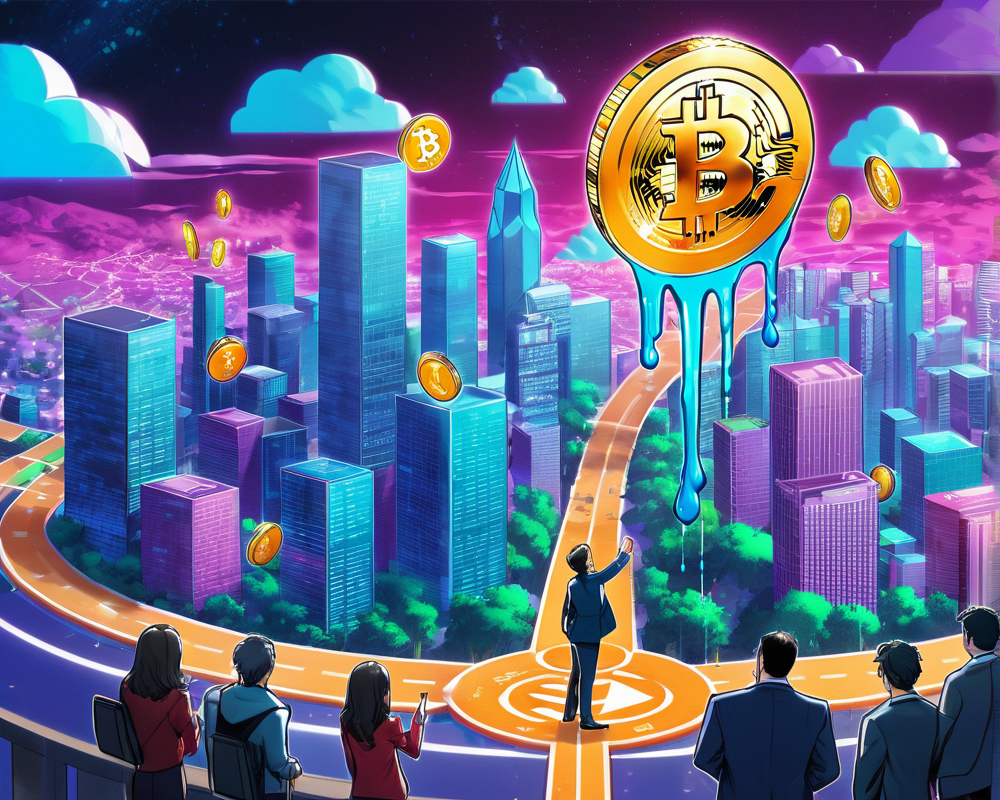Understanding the SEC’s Allegations Against Ripple
The United States Securities and Exchange Commission (SEC) has thrown a legal monkey wrench into Ripple’s operations, claiming the XRP token is a security. The charges allege that Ripple, along with CEO Brad Garlinghouse and co-founder Christian Larsen, raised over $1.3 billion through what they describe as an “unregistered, ongoing digital asset securities offering” since 2013. In simpler terms, the SEC is accusing Ripple of not playing by the rules—this feels like telling a toddler to stop playing with their spaghetti!
The Core of the Charges
According to the SEC, Ripple didn’t just stop at raising funds; it also distributed XRP for various services. This bit is important: they claim Garlinghouse and Larsen didn’t register personal XRP sales, which are pegged at a whopping $600 million. Stephanie Avakian, the director of the SEC’s Enforcement Division, highlighted how their actions deprived potential investors of crucial information about XRP, likening it to selling a car without mentioning it might be a lemon!
The $1.3 Billion Question
One of the biggest puzzles is the classification of tokens in the crypto space. Under SEC regulations, crypto firms must register their offerings if they qualify as securities. However, the disagreement about which tokens fall under that umbrella is still as muddy as a swamp in springtime. The crypto industry has been pleading for clarity for ages—it’s almost like waiting for your favorite TV show to return after a cliffhanger!
Reactions from Ripple’s Ranks
As the news of these charges hit headlines, XRP’s value took a nosedive, dropping over 20% to around $0.45. Ouch. Garlinghouse took to Twitter, saying that the SEC’s actions are a blatant attack on crypto, cramping innovation like a bad cramp during a marathon.
“The SEC is doing the opposite of ‘fostering innovation’ here in the US,” Garlinghouse tweeted, not holding back.
Yoshitaka Kitao, a board member at Ripple and CEO of SBI Holdings, is holding onto a glimmer of hope. He believes Ripple will win in court, echoing sentiments based on Japan’s financial regulators deeming XRP as not a security. Meanwhile, David Schwartz, Ripple’s CTO, expressed less optimism, lamenting how regulators in the U.S. can feel like that partner who doesn’t support your dreams, always saying you should’ve known better.
The Ripple Effect on Crypto Regulation
Garlinghouse hinted that most RippleNet customers are abroad, suggesting that a securities designation might not complete wipe the business off the map. But he has also hinted at the frustration felt within Ripple regarding the lack of regulatory clarity in the U.S. Changes are brewing, and Ripple could even consider relocating. Grab the popcorn; this regulatory drama is just getting started!
Final Thoughts: What’s Next?
As the legal battle unfolds, many are left pondering what this could mean for the future of crypto in America. Will the SEC finally define which tokens are securities, or will we continue to trot down a bumpy road filled with uncertainty? In the world of crypto, one thing is for sure: fasten your seatbelt because the ride ahead might just be wild.


